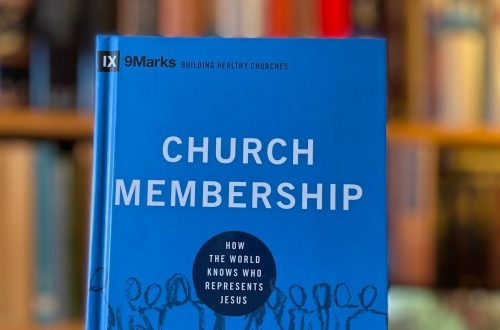 I have been watching with some interest the ongoing Twitter conversation between Ryan Anderson and New York Times reporter Josh Barro. Anderson supports the traditional marriage position, and Barro has been arguing that those who hold Anderson’s view are not worthy of civility. Barro says that such persons should be treated with the same intolerance that we would give to segregationists.
I have been watching with some interest the ongoing Twitter conversation between Ryan Anderson and New York Times reporter Josh Barro. Anderson supports the traditional marriage position, and Barro has been arguing that those who hold Anderson’s view are not worthy of civility. Barro says that such persons should be treated with the same intolerance that we would give to segregationists.
For anyone paying attention to the current cultural climate, none of this is surprising. Still, it is jarring to see such a bald expression of intolerance from a New York Times reporter. I encourage you to read Ryan Anderson’s two blog posts chronicling the conversation (here and here). Anderson is simply arguing that we ought to treat one another with respect and civility. Barro rejects this proposition in no uncertain terms. He says traditional marriage supporters do not deserve respect or civility and will not get any from him. Some of the conversation is below.
@RyanT_Anderson why would you expect me to be civil toward you? You devote your life to promoting anti-gay public policies.
— Josh Barro (@jbarro) July 26, 2014
@RyanT_Anderson a marriage is whatever the government says it is.
— Josh Barro (@jbarro) July 26, 2014
@RyanT_Anderson a marriage is like a corporation or a patent. its legal terms are not 'discovered', they are set by lawmakers.
— Josh Barro (@jbarro) July 26, 2014
@RyanT_Anderson we should treat all people with respect? obviously not. should we treat segregationists with respect?
— Josh Barro (@jbarro) July 26, 2014
@RyanT_Anderson obviously some policy views render people unworthy of respect. you just don't like where I'm drawing the line.
— Josh Barro (@jbarro) July 26, 2014
.@jbarro people are always worthy of respect, even if their policy views are misguided. Nothing renders "people unworthy of respect" wow.
— Ryan T. Anderson (@RyanT_Anderson) July 26, 2014




17 Comments
Bob Marean
I do believe that what Mr Barro is suggesting is that those in support of only traditional marriage are NOT respecting the beliefs of those who wish to take part in non-traditional marriage, and in their way are acting with no civility toward those taking part in that non-traditional marriage.
This lack of respect and actual pushing against non-traditional marriages carries some of the same lack of respect for and intolerance of individuals as the segregationists held .against blacks, or the Irish in their time, or the Italians in theirs, though without the violence. I’m not sure that it calls for uncivility, but I do understand his point.
I have no problem with anyone thinking that non-traditional marriage is wrong, even though I think they are indeed misguided themselves. My hope is that through time and reflection upon Christ’s love for all, they will come to realize that while they may not agree with the non-traditional folks, it is an issue between them and God.
God gives us all freedom of choice, as long as those choices do not impinge on the rights of someone else. Non-traditional marriage is an expression of love between two people, just as it is in traditional marriages. And just as it is in traditional marriages, that expression of love does not impinge on the rights of anyone else. To say or imply that it does in some way implies that traditional marriage is also impinging on the rights of others, and I think we would all agree that is not the case.
Now the law in many states accepts the rights of those who wish to participate in non-traditional marriages. As such it is legal for folks to participate in non-traditional marriages. You are welcome to disagree with this if you wish, but the law in many states says that it is time for the intolerance to stop.
Esther O'Reilly
Somehow, the significance of all this seems a bit lessened by the fact that it’s all happening on Twitter. Just kind of wish it hadn’t been invented in times like these.
In any event, of course I’m on Ryan’s side, although I actually disagree in general with the broad-brush statement that there is no policy position anybody could take, on anything, that would render them unworthy of respect. Of course I believe any politician who supports, say, abortion, is “unworthy of respect.” Obviously Anderson’s opponent is a crazed cook who thinks conservatives are just as vile for “opposing gay rights,” but there are in fact some truly vile ideas whose proponents don’t deserve a place at the table of civil discourse. Frankly I think the more the left lets its tentacles show, the more helpful and clarified the conversation will become as all that was hidden comes into the light.
buddyglass
Denny- do you agree with Anderson that nothing renders someone unworthy of respect?
Do you respect Barro?
It seems there’s respect and then there’s respect. The former is something believers are to extend to all human beings, sinful and misguided though they may be, given they’re created in the image of God and beloved of the Father. The latter is something we reserve for those who’ve done something special to merit our appreciation.
I try to treat everyone in a way that recognizes the innate human dignity he or she posses. That said, there are some people I respect and some people I don’t particularly respect.
Ryan Davidson
Yes, Barro’s responses are a bit excessive. Even so, the reasoning set forth in Anderson’s book suffers from deep theological flaws.
Adam Westmoreland
That’s because they aren’t a theological argument…he’s trying to reach non-Christians. Christians who trust the Bible don’t need his line of reasoning to be assured of God’s purposes for marriage.
Ryan Davidson
It’s probably more accurate to say that Anderson’s reasoning is not explicitly theological. That’s not to say that it’s not implicitly so. Without certain religious assumptions (which are never explicitly acknowledged in New Natural Law Theory), Anderson’s idealist epistemology unravels. And once you start examining whet those religious assumptions are, you come to something that looks more like a socially conservative variant of the theology of Harry Emerson Fosdick, i.e., a social gospel redux, if you will.
Frankly, I’ll take my stand with sectarians like Machen, and elect not to forego the gospel simply to achieve some ephemeral political end. But maybe the social gospel is your thing.
James Bradshaw
I’m not sure about this. Some people hold beliefs I find repugnant, but I get along with a few nonetheless. My grandfather was from Sicily, grew up in a rough environment and was known to make some racist comments here and there. I found these appalling, of course, but it didn’t change my love for the man. He was, despite his narrow-mindedness, good friends with an African-American woman and was otherwise generous with his family.
Perhaps it comes down to whether one’s beliefs necessarily require they mistreat or abuse their fellow human beings. If they don’t, I don’t see what the problem is. We all hold ideas that are going to offend or bother others.
Randall Seale
Denny – many thanks for bringing to your blog many stories that would for the most part go unnoticed otherwise. Your statement: “For anyone paying attention to the current cultural climate, none of this is surprising. Still, it is jarring to see such a bald expression of intolerance from a New York Times reporter” accurately expresses my response as well.
Barro’s position is nothing other than a warped worldview coming to fruition. If govt’ defines “marriage” in his view, does his view preclude gov’t from defining anything? Is there any transcendent moral principle by which gov’t itself is defined? Would it be wrong for gov’t to reverse itself and begin to persecute gays?
buddyglass
If govt’ defines “marriage” in his view, does his view preclude gov’t from defining anything?
I can’t speak for Barro, but if I understand him correctly he’d answer your question in the affirmative. He would likely respond that gov’t defines marriage because marriage is essentially a legal contract. He’s not thinking of it as a spiritual covenant that would exist even in the absence of government.
You and I would probably (I’m guessing) agree that a man and a woman stranded on a desert island by themselves could “marry” in a very real sense, despite the lack of a certificate, of any state apparatus to guarantee the rights and privileges of marriage, etc. That is to say God would not count it sin for them to be intimate, raise a family, etc.
I suspect Barro would disagree. He would acknowledge that the couple might pledge themselves to one another in a religious ceremony, but in the absence of a legal system to confer the status of “marriage” on them and to guarantee the rights of marriage and enforce the obligations of marriage he would consider them to not be “married” in any real sense.
As a thought exercise, replace “marriage” with “what crimes are felonies” and you’re probably getting close to Barro’s view. Obviously the gov’t defines what crimes are felonies. A crime is a felony if the gov’t says its a felony. If the gov’t says its a misdemeanor then it’s by definition not a felony. Etc.
Curt Day
I disagree with Barro but I do understand his point. He is basically saying that those who pose a threat to others do not deserve respect. Christians have always posed a threat to gays in the legislation they support from the criminalizing of homosexuality to the denying gays the right to marry whom they choose to the proposing of Jim Crow laws targeting gays. Barro’s antagonism seems to take all of this into account. So as much as we find his gruffness wrong and offensive, at least it is honest.
Daryl Little
“a marriage is whatever the government says it is.”
So then presumably prior to the government redefining marriage to include same-sex mirage, he had no problem with the law, after all, the government gets to decide these things.
Funny how sin makes us inconsistent and un-smart.
buddyglass
So then presumably prior to the government redefining marriage to include same-sex mirage, he had no problem with the law, after all, the government gets to decide these things.
This doesn’t follow from Barro’s position. He’s saying that the state defines marriage from a legal standpoint. That doesn’t mean he thinks all possible definitions are equally okay.
Daryl Little
But that’s not what he said. He was replying to the idea that we disagree over what a marriage by replying that it’s up to the state to decide.
By his definition, by what possible means could he tell the state that they’ve gotten it wrong? Maybe he has a means, but he’s do bent on telling Ryan to shut-up that he’s not offering it.
It reads to me like he has no idea how to define marriage, just so long as it doesn’t exclude anyone that he’d like to see included.
Not unlike the guy in the Q&A of Ryan’s presentation, who had no idea what his principles were in concluding that he ought to be able to consider himself married if he could convince another guy to be his “husband”.
buddyglass
But that’s not what he said. He was replying to the idea that we disagree over what a marriage by replying that it’s up to the state to decide.
As I understand Barro, his point is that it doesn’t matter how Anderson (or Barro) defines marriage. In the legal sense, which seems to be what matters to Barro, marriage (like a felony) is whatever the state defines it to be. If a law were passed allowing me to marry my left foot and I went through the process of marrying my left foot then I would be truly married (in the legal sense) to my left foot. That’s what Barro means when he says, “a marriage is whatever the government says it is.”
By his definition, by what possible means could he tell the state that they’ve gotten it wrong?
Equality under the law. Fairness. The extent of the negative impact caused by excluding certain kinds of unions, etc. These are, as a matter of fact, the exact arguments being made in courts. (Mostly the first one.)
Pingback:
Jay Hall
Barro is calling for incivility, but is he actually being uncivil? This exchange appears to be a passionate discourse, but I don’t see any name-calling or threats of violence going on. Exactly how are we defining “respect” here? I can’t say I necessarily respect people who are my ideological polar opposites. I might like them in social settings, but that’s kind of irrelevant, and it’s definitely not required. Exactly how are these two men defining respect and civility?
Scott Shaver
Why is Burke “shocked” by the intolerance of a secular columnist? Perhaps that writer is just giving as he’s received. For example, Burke himself referred to Ann Coulter’s recent comments about “Christian narcissism” as “sub-Christian garbage” even though the lady made some salient points.
Try practicing a little more humility towards those you disagree with and chances are they may treat you likewise.